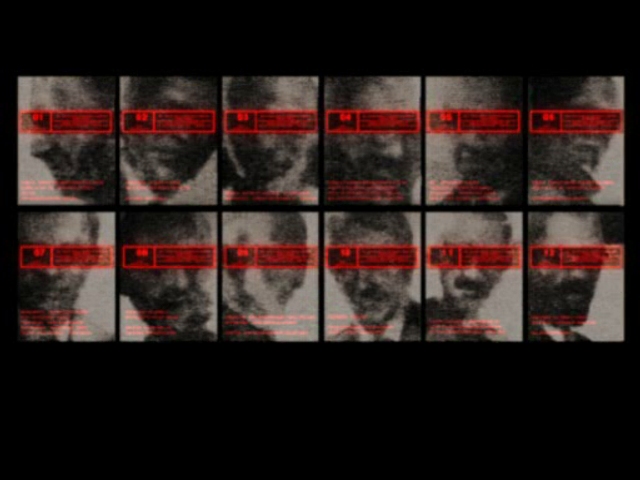This post originally appeared on Matt Weise's blog Outside Your Heaven.
There's only one game released this past decade that made the sort of impression upon me that earns it a place on this list. I've loved plenty of games in the past 10 years, but only one that really changed my idea of what videogames can be...
My feelings about Metal Gear Solid 2 are intense to the point of incoherence... much like the game itself. A lot of why I love the game has to do with when it was released, which was right after 9/11. For me the game served a function that must have been similar to the film Dr. Strangelove when it was released at the height of the Cold War. As daring, irreverent political commentaries in games go, there is MGS2 and then there's nothing. Okay, well maybe there's Fallout 2, the game that ends with you wiping out the last remnants of a fascist, genocidal U.S. government. But that's just the end of the game. MGS2 is a balls-out 'fuck you' to America's worst dystopian impulses from the moment you press 'start' to the moment the final credits roll. That it seemed to be about America's post-9/11 nationalist hysteria was, of course, an accident of its release timing. But that doesn't change the fact that it functioned so well as a bombastic parody of Bush's new world order.
Because of MGS2 I still think of the people who run my government as "The Patriots": the faceless, powerful elite that are just out of democracy's reach. Whereas games like Deus Ex gave me the same old international conspiracy theories I'd seen in the X-Files, MGS2 gave me a deliciously national conspiracy theory: a horrifically corrupt U.S. government with a puppet democracy and a global censorhip agenda. The Patriots were responsible for everything in MGS2, including the game's intentionally linear design. You follow their instructions and do everything they ask you to, and thereby prove you are willing to be controlled. It's the same game design-as-mind control metaphor Bioshock would use years later, only MGS2 never contradicts itself by pretending rebellion from within the constraints of a designed system is possible. As the authors of your "game" The Patriots' stranglehold on you is absolute, a fact which they rub in your face by the end. A videogame is not a democracy, because the player does not have the ability to rewite the rules. But you don't really want a democracy anyway, do you? Not if you're being sufficiently entertained...
The way MGS2 positioned videogames, with their coyly disguised limits, as metaphors for similar kinds of deceptive government was, in a word, brilliant. It really did have a lasting effect on how I think about both games and government, which to this day is rather cynical. I suppose I feel as incredulous about Warren Spector's utopian notions of "shared authorship" as I do about Obama's promises of hope and change. They are nice promises, but really what does it mean to say a choice is "meaningful" when it is someone else deciding what "meaningful" means? Is the choice between the Left and Right in America a meaningful one? Is the ability to choose between path A or B in Mass Effect a meaningful one? Both game companies and politicians would like us to believe so, but it is important to recognize that these "choices" have been pre-defined within limits we, in fact, have no ability to influence.
MGS2 darkened my view of games forever, and it still remains a remarkable example of astonishingly irreverent political commentary in a mainstream videogame. My demand that games be controversial on political subjects as well as hijack massive commercial budgets for the sake of naked personal statements is due entirely to MGS2. Splinter Cell, Call of Duty, and even Fallout 3 are inferior versions of MGS2 by this metric. In fact, nearly all games are inferior by this metric.
There are many, many games that remain important to me that I have not included on this list. Stuff like Super Punch-Out, Gunstar Heroes, Ikaruga, Snatcher, Symphony of the Night and many other of my favorite games are not ones I can really trace back to a "taste genesis", a prototypical game experience that I feel prepared me for loving these games. Looking at the games that influenced your taste is not really an exercise in listing all the games you love, but listing the games that determined the types of games you love. That's why Ikaruga is not on the list in spite of being one of my favorite games ever: because my love of it in no way lead to a love of shmups.
While I like games of all sorts of genres, there are certain types of games I keep coming back to, certain groups of aesthetic choices I tend to look for my enjoyment in. The games I listed--Frantic Freddie, Super Mario Bros., Ultima: Exodus, Bionic Commando, Ultima VII, System Shock, Thief, and Metal Gear Solid 2-- are not necessarily even my favorite examples of the game types they represent. But they are the ones that helped me developed the road map by which I found some of the best games I've ever played, and, more importantly, the tools to understand why I like them.







